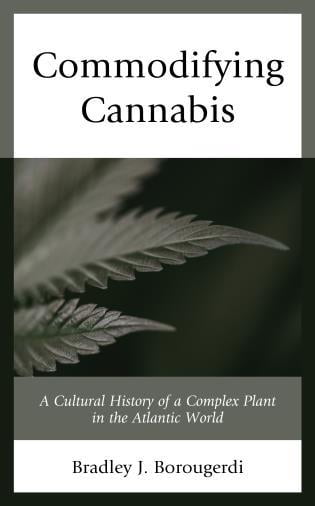Box 19529
202 University Hall
Arlington, Texas 76019
UTA alumnus publishes history of cannabis

Congratulations to UTA doctoral alumnus Bradley J. Borougerdi on the publication of his first book Commodifying Cannabis: A Cultural History of a Complex Plant in the Atlantic World.
Based up research undertaken for his Ph.D. dissertation "Cord of Empire, Exotic Intoxicant: Hemp and Culture in the Atlantic World, 1600-1900" (completed in 2014 under the direction of Dr. Christopher Morris), Borougerdi's new volume traces the tangled histories of cannabis - a genetically diverse plant that has been commodified for a variety of different purposes by many cultures throughout world history. For thousands of years, people have used its fiber, seed, and flowers to make rope and cloth, rig ships, feed people and livestock, concoct medicines, and alter states of consciousness. Until the nineteenth century, though, most Europeans and Americans were unaware of drug varieties of cannabis. The British encountered them in India and created western-style medicines that sold throughout the Atlantic world by the 1840s, but negative associations with Oriental intoxication and degeneracy sullied the plant’s reputation as a viable commodity. Now, after decades of transatlantic criminalization policies against cannabis in the twentieth century, it is making a comeback.
Commodifying Cannabis focuses on the dynamic interplay between different cultural applications to explain why the plant has transformed so many times throughout history. The study spans a vast geographical landscape and includes over three centuries of source material to illuminate the cultural foundations behind the myriad transformations cannabis has endured as a commodity in the Atlantic world.